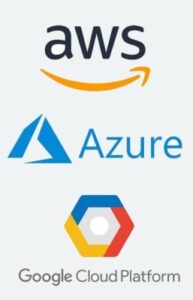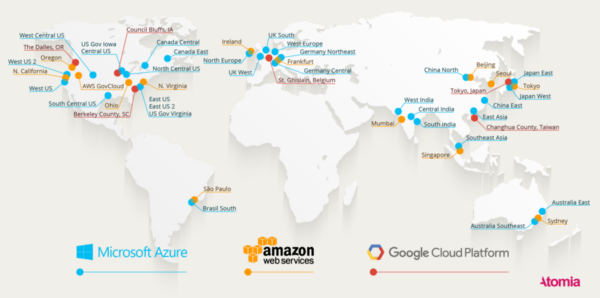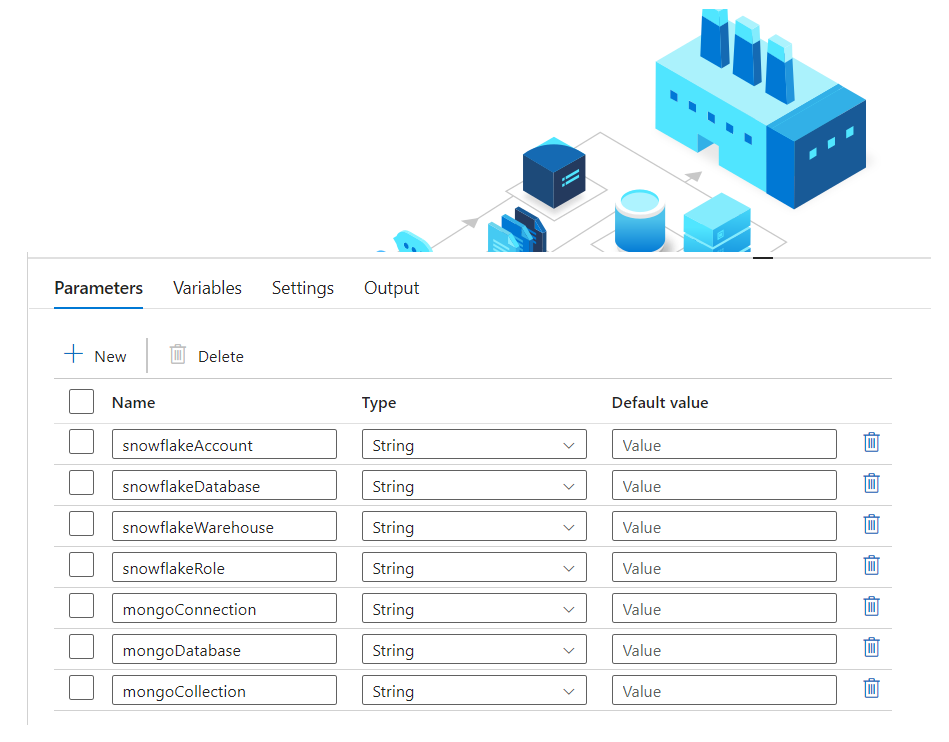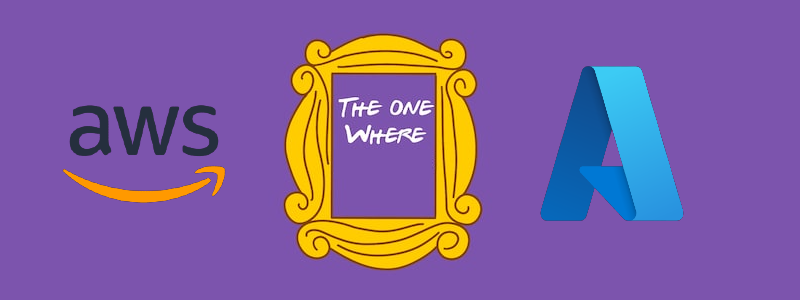
Learning Cloud Fundamentals
Posted in :
My wife often says “what’s the cloud, why does everything have to go to the cloud” (which is kinda funny considering what I do).
But for a lot of folks, the cloud is still an abstract concept and unless you have a job where you are forced into the cloud, you may be unsure where to start to learn.
Last week, I wrote about using vendor certifications as a way to help build a learn path, whether you take the tests or not. So let’s start there.
Beginner Cloud Certs
 All three major cloud vendors, Amazon Web Services (AWS), Google Cloud (GCP), and Microsoft’s Azure have a beginner certification. They each call them something different [ AWS: Cloud Practioner; Azure: Azure Fundamentals (AZ-900); GCP: Cloud Digital Leader ] but they cover a lot of the same territory.
All three major cloud vendors, Amazon Web Services (AWS), Google Cloud (GCP), and Microsoft’s Azure have a beginner certification. They each call them something different [ AWS: Cloud Practioner; Azure: Azure Fundamentals (AZ-900); GCP: Cloud Digital Leader ] but they cover a lot of the same territory.
Prior to even diving in, you should consider which one to start with. Any of the three will introduce you to basic cloud concepts, why you should move to the cloud, selling points, etc. To differentiate, you should consider which is popular in your market, or what kind of job you want, or which cloud vendor your company talking about, or is using. For high level differences, AWS tends to be more developer first, Azure tends to grow out of Microsoft uses in other areas of a business, say Office, SQL Server, Teams, etc.; and Google is strong in data and ML, and for not being one of the other two 😊.
What To Study
All three have study guides and on-demand learning to help get you started. Pay attention to those, and realize they can change over time, so if you started months ago, they may have added new technologies they now think are important.
Start with what are the advantages of the cloud – cost, scalability, disaster recovery, security, and resource allocation, i.e. who is responsible for managing what. Then how are the cloud resources physically maintained, where are the data centers (the cloud may seem ephemeral, but they are real places in the real world), who manages the power, the networking, the servers, all the physical things that make our modern digital world work. Each cloud provider might have a different term for their regions and zones, so learn those, and how they are connected, provisioned, and what their latency/uptime is within the region. Also, when it comes to networking, learn how they connect to your on premise resources, those are different services for each, and how they globally scale.

Shared Responsibility Model – What is the cloud providers responsibility, things like power to data center, physical security, server hardware. And what is the customer’s responsibility, like application code, data, etc.
Identify which service falls into each service type: Infrastructure as a Service (IaaS), like virtual machines; Platform as a Service (PaaS), like managed database services; or Software as a Service (SaaS), full managed software, like Office 365, GMail. Also, learn the service names, all three have pretty analogous product offerings, like each has a data warehouse service, AWS: Redshift, GCP: BigQuery, and Azure: Synapse. You won’t need to know what each does in depth, but you need to learn a one line definition for each. That being said it wasn’t a huge part of any of the exams, but you don’t know which they will ask. And AWS has way more services than the others, and GCP, well a lot of theirs are pretty intuitive, like Storage is “Google Cloud Storage” which is similar to AWS S3. (Oh, and on storage at least have a basic understanding of tiers and retention and use cases.)

Lastly, understand how each does billing and account management. Remember this is an intro to cloud services, so a lot of folks may just be coming in, provisioning services, and next thing they know get a huge bill. Or a company many have many departments that spun up shadow IT infrastructure, you need to understand, at a high level, how to bring those under one account and manage and monitor them.
Where are They Different
Primarily, all three are asking questions around the same topics, and largely geared towards helping people sell cloud migration or for those new to the cloud. However, each one emphasized some components more than others. They may word their questions differently too, so may ask the same kind of information, but in a different way. Azure asks Lowest Administrative Effort for “easiest”, and GCP has a phrase for cheapest which you will see a few times, while AWS may say which will help with the Cost Optimization WAF Pillar, which also just means cheapest. These are based on my tests, so your mileage may vary, you should still pay close attention to the study guide.
AWS
AWS Cloud Practioner was the most recent one for me, and also the service I felt I needed to study the most for, so the differences stood out more.
Well Architected Framework, Well Architected Framework, Well Architected Framework – Learn It, Live It, Know It
AWS thinks their WAF is really core to building on their cloud, so know the pillars of the framework. Which service would you choose if you more interested in Cost Optimization than Reliability, or which pillar does cloud elasticity apply to.
I had several questions on using spot instances to keep prices low. All three have spot instances, i.e. instances that the cloud provider can reclaim quickly, and for which you are willing to be booted off of, in exchange for a lower rate, but AWS asked me three questions on it.
AWS Organizations. Billing and management is key for each, but the mechanism differs, so learn about Organizations and Master Payer Accounts, and how that can get your enterprise price breaks.
Horizontal versus vertical scaling, and which one EC2 auto-scaling uses (horizontal, i.e. you add more instances, not bigger instances in vertical).
Learn which services AWS considers serverless, it surprised me in some cases, and they might ask if you want to make sure is a serverless instance type which do you pick (often this is Lambda).
Monitoring, knowing Cloud Trail versus Cloud Watch is important, and well, that one was hard for me.
Azure
Azure asked more service definition questions than the other two on my tests. Luckily, you don’t have to learn icons, that would be a mess (however, makes for a fun trivia game if you want for your office team). But they do want you to be able to tell them which container service is which for example, like if it says Kubernetes, you know AKS.
Azure has a concept of resource group, the others don’t, so that is important to understand. It is a logical grouping for management, but has no physical requirements, meaning if you are deploying a certain app you could keep all the resource in it, and apply permissions to it, but the services themselves could be of all types spread around the world. (This is probably one of the things I miss the most when in GCP and AWS, they manage this differently.)
Azure was probably the most straight forward one, and easiest for me, but not sure if that is because I have more Azure experience. Azure is also offering free practice test for some of their certs now, so check those out.
Google Cloud
GCP had more questions around why you should go to the cloud, what are the key advantages, what is CapEx versus OpEx, etc. This is an important topic to understand regardless of which cloud vendor you use, just GCP emphasized more. In addition, they asked more questions around the shared responsibility model, like who is responsible for paying the security guard at the data center, or making sure there is redundant power and networking (GCP is).
GCP has more data and ML service offering questions, not surprising for the company that gave the world TensorFlow.
 Happy Learning
Happy Learning
Besides using the vendors’ sites for the study guides, learning paths, and free practice questions, there are a few other resources. ExamTopics is where people have put sample questions for a variety of tests, but, the caveat is, sometimes you have to read the answer discussions, the one marked right, may not always be right, what you get for crowdsourcing. However, understanding how the questions are worded is very helpful. ACloudGuru and PluralSight are both good, paid sites. PluralSight owns both but they have different content and different costs. Both offer a short free trial so try before you buy. If you think you will be doing more than one test or want a career doing more they could be a good investment.
One last tip, if you take the test, you may not know every answer, but start by eliminating the ones you know it can’t be, if AWS wants something serverless you know it won’t be EC2, and then narrow your choices of possible correct answers. If you have to guess, better to do so when you have a 50/50 chance than a 1 in 4 or 1 in 5 chance.
Good luck, whether you take the tests or not, learning about the cloud is hugely important for anyone in (or wanting to get into) technology in our current world.



